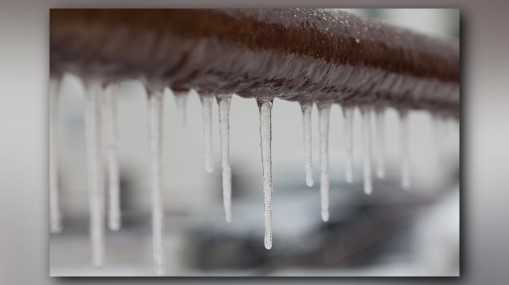We've unearthed this post about How to prepare your home plumbing for winter weather listed below on the internet and felt it made perfect sense to quickly share it with you on this site.

Cold weather can ruin your pipes, specifically by freezing pipelines. Here's how to stop it from occurring and what to do if it does.
Intro
As temperatures decline, the danger of frozen pipelines increases, potentially resulting in expensive repair work and water damages. Understanding exactly how to stop frozen pipes is critical for homeowners in chilly climates.
Comprehending Frozen Pipelines
What triggers pipelines to ice up?
Pipelines freeze when exposed to temperatures below 32 ° F (0 ° C) for expanded durations. As water inside the pipes freezes, it increases, taxing the pipe walls and potentially triggering them to rupture.
Threats and problems
Frozen pipes can result in supply of water disruptions, home damage, and costly repair work. Ruptured pipes can flooding homes and trigger considerable architectural damages.
Indications of Frozen Pipeline
Identifying frozen pipelines early can avoid them from bursting.
Exactly how to recognize frozen pipes
Seek lowered water flow from faucets, unusual smells or noises from pipes, and visible frost on subjected pipelines.
Prevention Tips
Insulating vulnerable pipes
Wrap pipes in insulation sleeves or utilize heat tape to safeguard them from freezing temperatures. Concentrate on pipelines in unheated or external locations of the home.
Home heating techniques
Keep interior rooms appropriately warmed, specifically locations with plumbing. Open closet doors to enable warm air to flow around pipelines under sinks.
Securing Outdoor Pipes
Garden tubes and outdoor faucets
Separate and drain garden pipes before wintertime. Set up frost-proof faucets or cover outdoor faucets with insulated caps.
What to Do If Your Pipelines Freeze
Immediate activities to take
If you think frozen pipes, maintain taps available to soothe pressure as the ice melts. Utilize a hairdryer or towels soaked in hot water to thaw pipelines gradually.
Long-Term Solutions
Structural adjustments
Consider rerouting pipelines far from exterior wall surfaces or unheated locations. Add extra insulation to attic rooms, basements, and crawl spaces.
Updating insulation
Purchase premium insulation for pipes, attic rooms, and walls. Proper insulation assists maintain regular temperatures and lowers the danger of icy pipes.
Verdict
Avoiding frozen pipelines needs positive steps and fast actions. By recognizing the reasons, indicators, and safety nets, house owners can protect their pipes throughout winter.
Helpful Tips to Prevent Frozen Pipes this Winter
UNDERSTANDING THE BASICS: WHY PIPES FREEZE AND WHY IT’S A PROBLEM
Water freezing inside pipes is common during the winter months, but understanding why pipes freeze, and the potential problems it can cause is crucial in preventing such incidents. This section will delve into the basics of why pipes freeze and the associated problems that may arise.
THE SCIENCE BEHIND FROZEN PIPES
When water reaches freezing temperatures, it undergoes a physical transformation and solidifies into ice. This expansion of water as it freezes is the primary reason pipes can burst. As the water inside the pipe freezes, it expands, creating immense pressure on the walls. If the pressure becomes too great, the pipe can crack or rupture, leading to leaks and water damage.
FACTORS THAT CONTRIBUTE TO PIPE FREEZING
Low Temperatures: Extremely cold weather, especially below freezing, increases the risk of pipes freezing. Uninsulated or Poorly Insulated Pipes: Pipes located in unheated areas, such as basements, crawl spaces, or attics, are more prone to freezing. Insufficient insulation or lack of insulation altogether exacerbates the problem. Exterior Wall Exposure: Pipes running along exterior walls are susceptible to freezing as they encounter colder temperatures outside. Lack of Heating or Temperature Regulation: Inadequate heating or inconsistent temperature control in your home can contribute to frozen pipes. PROBLEMS CAUSED BY FROZEN PIPES
- Pipe Bursting: As mentioned earlier, the expansion of water as it freezes can cause pipes to burst, resulting in significant water damage.
- Water Damage: When pipes burst, it can lead to flooding and water damage to your property, including walls, ceilings, flooring, and personal belongings.
- Structural Damage: Prolonged exposure to water from burst pipes can compromise the structural integrity of your home, leading to costly repairs.
- Mold and Mildew Growth: Excess moisture from water damage can create a favorable environment for mold and mildew growth, posing health risks to occupants.
- Disrupted Water Supply: Frozen pipes can also result in a complete or partial loss of water supply until the issue is resolved.
WHY CERTAIN PIPES ARE MORE PRONE TO FREEZING
- Location: Pipes located in unheated or poorly insulated areas, such as basements, crawl spaces, attics, or exterior walls, are at higher risk of freezing.
- Exterior Pipes: Outdoor pipes, such as those used for irrigation or exposed plumbing, are particularly vulnerable to freezing as they are directly exposed to the elements.
- Supply Lines: Pipes that carry water from the main water supply into your home, including the main water line, are critical to protect as freezing in these lines can affect your entire plumbing system.
- Underground Pipes: Pipes buried underground, such as those connected to sprinkler systems or outdoor faucets, can be susceptible to freezing if not properly insulated.
https://busybusy.com/blog/helpful-tips-to-prevent-frozen-pipes-this-winter/
:strip_icc()/snow-outdoor-faucet-pipes-4af65d1e5e904fb1aa7bf74071fe5d89.jpg)
Hopefully you enjoyed our section about Helpful Tips to Prevent Frozen Pipes this Winter. Thanks so much for taking the time to browse our blog. Remember to take the time to distribute this blog entry if you appreciated it. Thanks a lot for your time. Please check up our blog back soon.
Call Today